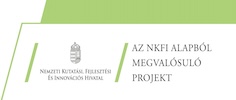Entrepreneurship Quo Vadis - EcoAction Support
While entrepreneurship has become fashionable with the rise of the gig economy and the Fourth Industrial Revolution, it is not always easy or rewarding without a lot of hard work or even serendipity and sheer grit. Only two to three out of ten new ventures worldwide have a chance of success, and even among those, only a few become market leaders.
To understand what makes some startups succeed and others fail, we need to delve into history, look to the future, and keep our eyes firmly fixed on the present. The globalized world economy has indeed "shrunk" distances, and anyone anywhere and anyone everywhere is essentially competing against each other. But with protectionism on the rise and globalization threatening to recede, the future of entrepreneurship will also be local, or a mix of global and local.
Moreover, as freelancing becomes the norm rather than the exception, entrepreneurs anywhere in the world will no longer be constrained by national borders and will be able to tap into the abundant armies of freelancers around the world. Furthermore, as cell phones and smartphones become ubiquitous, future entrepreneurs should combine technology with ease of use in their products so that even the layperson can benefit from this fusion.
However, startups and their founders must ensure that they stay on the right side of regulators and do not break the rules or flout norms in their quest for market share. Therefore, it is essential to be driven by technology and cutting-edge products, but also by pure business sense and an understanding of economics that has served previous generations of entrepreneurs well.
EcoAction is a project that aims to support start-ups by leveraging the entrepreneurial and innovation knowledge models of five cooperating universities and two leading technology transfer companies. The project aims to strengthen the entrepreneurial competencies of the participating universities and to stimulate hundreds of companies through direct cross-fertilization and networking in the partnership's catchment area. EcoAction multiplies the set of tools available for effective cooperation with industry in each university through the involvement of research transfer offices and associated partners, ensuring the ability to plan and execute outreach and dialogue with small and medium-sized enterprises (SMEs) with best results. The project also includes a training program that extends learning to students through entrepreneurial learning nuggets, ideation and pitching events, and improving student-industry collaboration through best practice sharing. The ultimate goal is to strengthen the integration and contribution of higher education institutions to innovation ecosystems by fostering an entrepreneurial culture and mindset. The project will greatly benefit the EIT community, which includes policy makers, incubators and representatives from the wider business community.
In conclusion, the future may be rocky for entrepreneurs, but it is also rosy for those willing to be on the cutting edge while not losing old-fashioned values such as ethics and a steady and stable approach to business. Being an entrepreneur can mean looking backward as well as forward without losing one's groundedness. EcoAction can support entrepreneurs in their journey.



